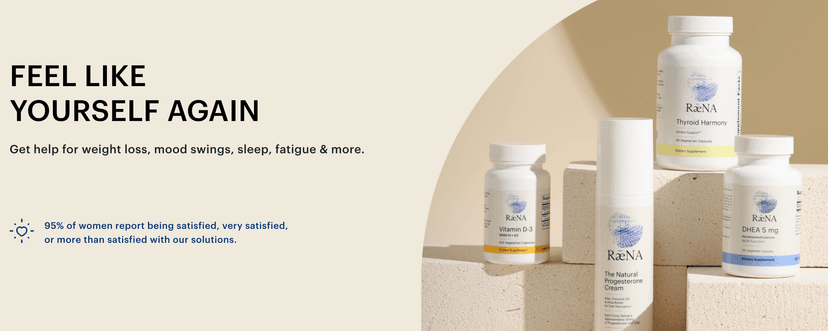Testosterone is a vital hormone that plays a key role in the body, affecting everything from muscle mass to mood. While it's often seen as a male hormone, testosterone is important for both men and women. As we age, our testosterone levels naturally decline, which can lead to a variety of symptoms. By understanding how to maintain healthy testosterone levels through diet, stress management, and lifestyle choices, we can support our overall well-being.
Key Takeaways
- A balanced diet with the right mix of protein, fat, and carbohydrates can help maintain healthy testosterone levels.
- Managing stress is crucial because high cortisol levels can lower testosterone.
- Recognizing the symptoms of low testosterone, such as fatigue and mood changes, is important for early intervention.
- Age, lifestyle, and medical conditions all influence testosterone levels.
- Consulting healthcare providers for proper diagnosis and treatment options, including natural remedies and hormone therapy, is essential.
Understanding Testosterone and Its Role in the Body
Functions of Testosterone
Testosterone is a crucial hormone that impacts many parts of the body. It helps in developing male features like muscle size, strength, and deepening of the voice during puberty. This hormone also plays a role in bone growth, sex drive, and sperm production. In both men and women, testosterone affects mood, energy levels, and overall well-being.
Testosterone in Men and Women
While testosterone is often linked with men, women also produce it, though in smaller amounts. In men, it is mainly made in the testicles, while in women, it is produced in the ovaries and adrenal glands. For both genders, balanced testosterone levels are important for maintaining health.
How Testosterone Levels Change with Age
As people age, testosterone levels naturally decline. This drop can lead to various symptoms like reduced muscle mass, lower energy, and changes in mood. Understanding these changes can help in managing health better as one gets older.
Keeping an eye on testosterone levels and understanding their role can help in maintaining a healthy and balanced life.
Dietary Choices to Support Healthy Testosterone Levels
Importance of Balanced Nutrition
A nutritious, well-rounded diet is essential for maintaining healthy testosterone levels. Eating a variety of whole foods ensures you get the necessary vitamins and minerals. This includes lean proteins, fruits, vegetables, nuts, and whole grains.
Role of Healthy Fats
Consuming healthy fats can support hormone balance. Some studies suggest that low-fat diets might decrease testosterone levels. Including sources of healthy fats like avocados, nuts, and olive oil can be beneficial.
Impact of Protein and Carbohydrates
A balanced intake of protein and carbohydrates is crucial. Proteins are the building blocks of hormones, while carbohydrates provide the energy needed for daily activities. Aim for a diet that includes both in appropriate amounts to support overall health and hormone levels.
Following a nutritious, well-rounded diet with balanced amounts of protein, fat, and carbs may help support healthy testosterone levels.
Managing Stress for Hormonal Balance
Effects of Cortisol on Testosterone
Stress can lead to high levels of cortisol, a hormone that can lower testosterone. When cortisol goes up, testosterone often goes down. This can also cause weight gain and increase body fat around organs, which is harmful to testosterone levels.
Stress Reduction Techniques
To keep stress in check, try these activities:
- Meditation
- Yoga
- Deep breathing exercises
- Hobbies that make you happy
Getting enough sleep is also important. Aim for 7-9 hours of good quality sleep each night.
Long-term Benefits of Stress Management
Managing stress well can help keep your hormones balanced. This can lead to better overall health and well-being.
Taking steps to reduce stress can have lasting positive effects on your hormone levels and overall health.
Recognizing Symptoms of Low Testosterone
Physical Symptoms
Low testosterone can lead to several physical changes in the body. Some common signs include:
- Reduced body and facial hair: Men may notice less hair growth on their face and body.
- Loss of muscle mass: There can be a noticeable decrease in muscle size and strength.
- Low libido: A reduced interest in sexual activity is a frequent symptom.
- Erectile dysfunction: Difficulty in achieving or maintaining erections can occur.
- Increased breast size: Some men may develop larger breasts, a condition known as gynecomastia.
- Hot flashes: Sudden feelings of warmth, often associated with sweating.
- Brittle bones: Lower testosterone can lead to decreased bone density, increasing the risk of fractures.
Emotional and Cognitive Symptoms
Testosterone doesn't just affect the body; it also impacts the mind. Emotional and cognitive symptoms of low testosterone include:
- Irritability: Men may feel more easily annoyed or frustrated.
- Poor concentration: Difficulty focusing on tasks or maintaining attention.
- Depression: Feelings of sadness or hopelessness can be more prevalent.
- Low energy: Persistent fatigue, even after adequate rest.
When to Seek Medical Advice
If you experience any of these symptoms, it's important to consult with a healthcare provider. Early diagnosis and treatment can improve quality of life. Your doctor can perform tests to determine if low testosterone is the cause and recommend appropriate treatments.
Factors That Influence Testosterone Levels
Age and Natural Decline
As you get older, it's normal for testosterone levels to go down. This natural decline usually starts around age 30 and continues throughout life. However, low testosterone can happen at any age.
Lifestyle and Environmental Factors
Your daily habits and surroundings can also affect your testosterone levels. Things like poor diet, lack of exercise, and exposure to harmful chemicals can lower your testosterone. Here are some lifestyle factors to consider:
- Diet: Eating too much sugar and processed foods can hurt your hormone balance.
- Exercise: Regular physical activity, especially strength training, can help keep testosterone levels up.
- Sleep: Not getting enough sleep can lower your testosterone.
- Stress: High stress levels can lead to higher cortisol, which can reduce testosterone.
Medical Conditions and Medications
Certain health issues and medicines can also impact your testosterone levels. Conditions like obesity, diabetes, and thyroid problems can lower testosterone. Some medications, especially steroids and opioids, can also affect hormone levels.
It's important to talk to your doctor if you think a medical condition or medication is affecting your testosterone. They can help you find the best way to manage your health.
Treatment Options for Low Testosterone
Hormone Replacement Therapy
Hormone Replacement Therapy (HRT) is a common treatment for low testosterone. It involves taking medications that contain testosterone. These can be in the form of injections, patches, gels, or tablets. HRT can help improve energy levels, mood, and sexual function. However, it is important to discuss the potential risks and benefits with a healthcare provider.
Natural Remedies and Lifestyle Changes
For those who prefer a more natural approach, lifestyle changes can also help boost testosterone levels. This includes:
- Regular exercise, especially strength training
- Eating a balanced diet rich in healthy fats, proteins, and carbohydrates
- Getting enough sleep
- Reducing stress through relaxation techniques like meditation or yoga
Consulting with Healthcare Providers
It's crucial to consult with healthcare providers to determine the best treatment plan. They can perform tests to measure testosterone levels and recommend the most appropriate treatment. Regular check-ups are essential to monitor progress and make any necessary adjustments.
Taking a proactive approach to managing low testosterone can lead to better overall health and well-being.
Conclusion
Maintaining healthy testosterone levels is crucial for overall well-being. By following a balanced diet rich in whole foods, managing stress, and staying active, you can support your hormone health. Remember, testosterone levels naturally fluctuate with age, but adopting healthy lifestyle habits can help mitigate these changes. Regular check-ups with your healthcare provider can also ensure that your hormone levels remain in check. Prioritize your health by making informed choices and staying proactive about your well-being.
Frequently Asked Questions
What is testosterone?
Testosterone is a hormone mainly produced in the testicles for men and in smaller amounts in the ovaries for women. It plays a key role in developing male characteristics, muscle mass, and bone density.
How do testosterone levels change with age?
As people age, their testosterone levels naturally decline. This drop usually starts in middle age and continues as they get older.
Can diet affect testosterone levels?
Yes, a balanced diet with the right amounts of protein, fats, and carbs can support healthy testosterone levels. Eating whole foods is often recommended.
What are the symptoms of low testosterone?
Low testosterone can cause physical symptoms like weight gain and reduced muscle mass, as well as emotional symptoms like mood swings and low energy.
How can stress affect testosterone levels?
High stress levels can increase cortisol, a hormone that can lower testosterone levels. Managing stress through relaxation techniques can help maintain hormonal balance.
What are the treatment options for low testosterone?
Treatment options include hormone replacement therapy, natural remedies, and lifestyle changes. It's important to consult with a healthcare provider for personalized advice.
























